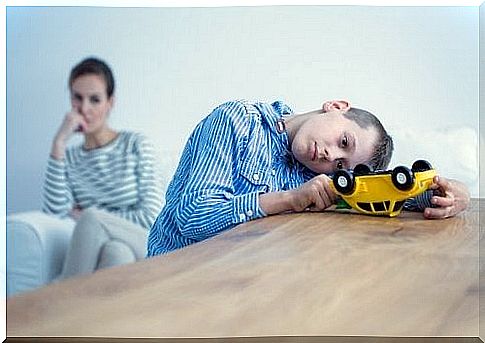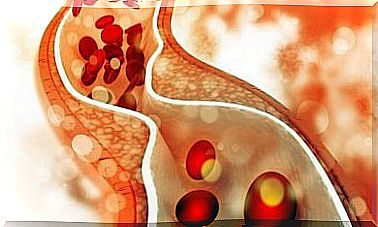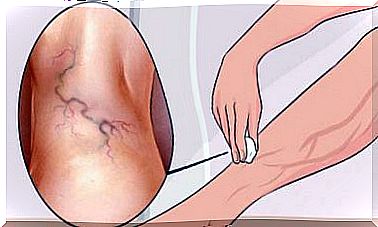Recognizing Mental Illness In Children
It is not easy to detect the symptoms of mental illness in children. In fact, we often think it is normal or temporary. However, we must remain alert and informed so that we can offer them the benefits of effective therapy as early as possible.

Mental illnesses and other disorders can affect both adults and children. Do you think you can recognize mental illness in children? Parental observation is very important.
For this reason, we have compiled a series of information that will allow you to learn more about the subject in order to know how to identify the manifestations that may indicate mental health problems in children. Find out all about it with us in the rest of this article.
Mental illness in children: what you need to know
While detecting mental illness in adults is not that complicated, it really is in children. In fact, younger children tend to have certain symptoms that are usually unnoticed by the adults who care for them.
In this way, professionals unfortunately lose precious time in the treatment of the disease. In addition, we must keep in mind that children lack vocabulary and the ability to express what is happening to them.
That is why it is important for responsible adults to be educated about how mental illness manifests in children. All this in order to detect it as soon as possible. Here are the most common mental disorders in children and their general symptoms.
The most common mental disorders in children
Children can have the same mental illnesses as adults. However, some are more common. Let’s take a look at them:
- Anxiety disorders: These disorders include obsessive-compulsive disorder, social phobia, generalized anxiety or mutism, among others
- Attention deficit and hyperactivity
- Autism
- Bulimia or anorexia
- Mood disorders: these are disorders such as depression, bipolar disorder, etc.
- Schizophrenia, which usually starts in late adolescence
Symptoms of mental illness in children
As explained above, mental disorders in children often go unnoticed by parents. In fact, the symptoms are initially considered normal in the behavior of the child, so they are not taken into account as a warning sign.
However, if the sign is present for a long period of time or intensely, then we must start to consider that it could be telling us that something is wrong.
On the other hand, parents often lack adequate information to be able to detect symptoms of mental illness in children. They may also not seek help, influenced by the negativity and stigma of mental illness in our society.
Either way, the first step is to move beyond taboos and prejudices and recognize that there is a problem. Only then can we effectively help our children by seeking medical help. Once this step is taken, a question remains: what are the symptoms of mental illness in children?
1. Behavior changes
These are drastic and radical changes in the behavior of the child. Most of the time, he begins to be overly irritable and violent, adopting dangerous and aggressive behaviors. He can also be threatening and constantly erupt into arguments or quarrels.
This is unusual and disproportionate irritability and aggressiveness which may indicate the existence of some disorder.
2. Mood swings
We are talking about significant changes that affect the daily life of the child. So, for example, if a feeling of sadness lasts longer than a fortnight and the child becomes too isolated and self-centered, we need to be attentive.
On the other hand, if this behavior prevents him from doing the activities he was doing or influences his school results, we can find ourselves facing a case of mental disorders such as, for example, childhood depression.
3. Difficulty concentrating
It is normal for children to have difficulty concentrating. However, if these difficulties are disproportionate to those of other children, if they affect their daily life and school performance, or at least two aspects of their life (school, home, etc.), we may be facing a symptom. of trouble.
On the other hand, we should also pay attention to other possible symptoms such as memory loss or impairment, as well as difficulty in thinking clearly or abnormal beliefs.
4. Excessive weight loss
Excessive weight loss, vomiting, or loss of appetite may indicate eating disorders. In these cases, it is important to be vigilant and seek help so that they can start treatment as soon as possible. Indeed, anorexia and bulimia can have very negative consequences if they are not treated immediately.
5. Self-harm
In many cases, mental illness can lead to self-harm. In this sense, we must be attentive to possible injuries to the body (cuts or burns) that the child could inflict on himself.
It is very important to seek help if this symptom appears. In fact, many mental illnesses also lead to thoughts of suicide, so the sooner they are detected, the sooner treatment will begin.
6. Feelings that are too intense
It is normal for children and teens to have intense feelings. However, if there is no reason and, for example, the child suffers from excessive irrational fear, it may be a symptom of a mental disorder.
These are phobias or fears that interfere negatively with their daily activities and whose intensity is unusual.
7. Headaches and stomach aches
While adults tend to have other symptoms like anxiety or sadness, children may express certain mental disorders differently. So, an unusual or constant headache or stomach ache may be a symptom that something is wrong.
On the other hand, we should also be aware of possible unexplained sleep disturbances. In all cases, we must first eliminate the physical problems that cause these pain or sleep disturbances, before exploring the trail of mental illness.
8. Drug addiction
Particularly in adolescence, the use of substances such as alcohol or drugs can be a way for children to “cope” or “avoid” their problems. For this reason, we need to be aware of any signs of substance abuse.
9. Alterations in perception
In these cases, the child expresses that he sees or hears people or things which, in reality, do not exist. Although the imagination of the youngest is limitless, it can also be a symptom of mental illness. That is why we have to be careful.
10. Difficulties in socializing
A lot of kids are shy, and that’s okay. However, it may not be shyness, but a mental disorder, which prevents the child from having normal relations with his environment.
On the other hand, if the difficulty in relating to others is excessive and the child avoids contact with other children or other people or feels unable to interact with them, we may be faced with an anxiety disorder or social phobia.
What to do if a mental illness is detected in a child?
Ask for help. If we detect some of these symptoms with the intensity and duration that we have described, it is best to speak to a doctor and inform them of the entire situation. We should also talk to the child’s teacher so that he can better describe to us if the symptoms are also showing up in school or if they have other symptoms.
From there, if the diagnosis is confirmed, psychological treatment will begin and bear fruit. However, the child must always count on the unconditional support and love of his family. In this sense, we must let them know that they are not alone, that their problem has a solution and that we will be there to support them.









